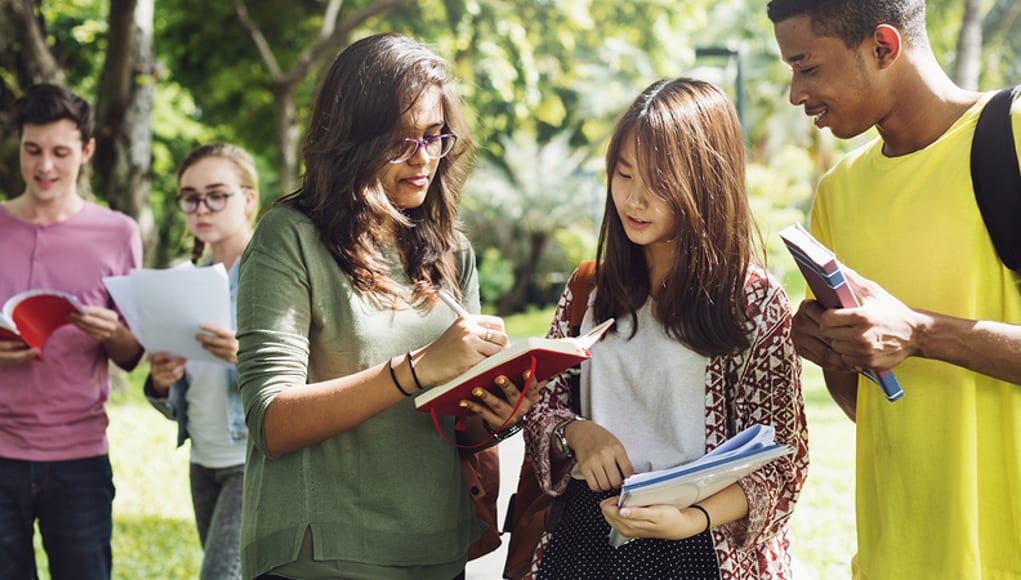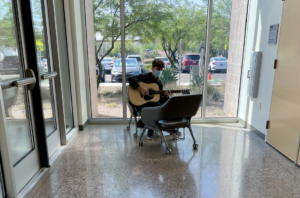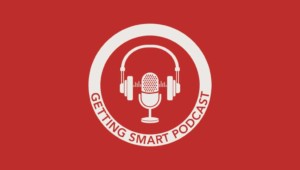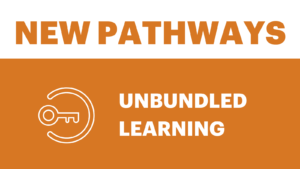Community Partnerships and School-Adjacent Experiences Are Powerful Ways to Rebundle Learning
Key Points
-
In communities nationwide, free and low-cost learning opportunities outside of school do exist.
-
As we explore the possibilities of rebundling learning, our children can have deeply rich learning experiences that bring the strengths of the community into the world of the school building and bring academic learning out into neighborhoods.
-
Making this kind of programming equitable will demand a long-term commitment to funding and supporting community institutions.

By: Yu-Ling Cheng
When learning couldn’t happen inside school buildings, many families began reaching out into their communities. Children needed meaningful learning experiences not dependent on an open school building or directly aligned with the traditional curriculum. Parents got creative, seeking learning opportunities outside of school to help their children stay engaged and recover lost learning.
And yet we know this didn’t happen for everyone. In many cases, parents who were already tapped into the vast offerings of paid programs and networks of influence found activities that fueled their child’s learning. Upper-income families have long turned to partners outside of school to give their children the enriching activities that build knowledge and skills. Meanwhile, many lower-income parents struggling with the pandemic’s impact couldn’t afford or didn’t know how to access unbundled learning opportunities.
In communities nationwide, free and low-cost learning opportunities outside of school do exist. Many have grown in response to the pandemic. But parents need to know where to find them, need to be able to access them and need to feel comfortable operating in the spaces where this learning happens.
Putting a Spotlight on School-Adjacent Opportunities
When we launched Remake Learning Days in 2016, our goal was to create a weeklong public celebration of hands-on learning that showed all parents just how many free and low-cost learning opportunities were available in the Pittsburgh region. We knew our region had a thriving and growing learning ecosystem. The key was making sure every parent knew how to plug into it and could experience it first-hand.
Now in its sixth year, Remake Learning Days Across America is happening in 17 regions of the country this year, with more than 1,450 in-person and virtual events – nearly all of them free – throughout late April and the month of May. But the goal remains the same: To make sure all parents discover the learning resources available in their community and get a chance to feel comfortable bringing their kids to learning events and extracurricular classes happening in museums, libraries, tech centers and so many other locations outside of school buildings.
These kinds of events empower parents and students to seek out learning that follows their interests and fuels their curiosity and creativity.
Propelling Partnerships Forward
The pandemic has fostered broader thinking around learning beyond the classroom, and given parents the chance to be more directly involved in their child’s development. That reality has encouraged more partnerships with community organizations that have long track records in designing programs to inspire learning. And the festival itself has encouraged unlikely partnerships and collaborations. In Florida’s Suncoast region, for example, a planning event for this year’s inaugural festival led members of a theater company and staff from a local library to host a family event called Loud at the Library on May 5. And Wholehearted Education, an arts and wellness organization, connected with the Sarasota Art Museum and other local groups and influencers to bring yoga and arts activities to the local farmers’ market.
There are partners everywhere ready and eager to support kids’ learning across subject areas and provide experiences that foster social-emotional development. Often they have ample experience working with educators and parents and can provide a bridge that strengthens the connections between home and school.
In communities nationwide, free and low-cost learning opportunities outside of school do exist.
Yu-Ling Cheng
We can continue to build this kind of enrichment model, do a better job of aligning the informal learning with traditional learning goals, and even make it count toward curriculum requirements.
Building on Pandemic Progress
In Pennsylvania, Remake Learning Days works with school districts and the state education department to bring together students, educators and employers for career exploration activities that fulfill state career readiness requirements. Thousands of students across the state are expected to participate in 186 events that reflect the careers of the future, from AI workshops and robotics challenges to agricultural programs, arts and environmental lessons.
Since the festival’s launch, 175,000 children of all ages and their parents and caregivers have participated in thousands of Remake Learning Days events across the country to learn about history, build community gardens, discover wildlife habitats, or get introduced to local arts and cultural traditions.
Two years of pandemic learning disruption have taught us many things. We understand in new ways just how fully learning can and should happen everywhere. And we are clear on the need to re-introduce our kids to the wonders of learning in our own backyards. Community organizations and even local businesses can work with parents and schools to provide the kinds of meaningful opportunities that help kids learn and thrive. The future of education must tap into the broader learning ecosystems in communities nationwide.
And while in-person activities can be more effective for capturing kids’ attention and building relationships–and we are celebrating our return to in-person learning of all kinds–we have also seen how virtual programming can yield learning and social benefits as well. As we explore the possibilities of rebundling learning, our children can have deeply rich learning experiences that bring the strengths of the community into the world of the school building and bring academic learning out into neighborhoods.
But we have to be mindful. Making these opportunities free does not guarantee they will reach the kids and families who might benefit the most. All parents need to know how to find and access these resources and feel welcomed in the spaces where these opportunities happen. Making this kind of programming equitable will demand a long-term commitment to funding and supporting community institutions, as well as greater outreach and communication to a more diverse community of parents and caregivers. As thousands of families and educators nationwide will discover in the coming weeks during Remake Learning Days, this bright future is already taking shape.
There will be “Wonder With Us” events that will happen on three successive Tuesdays from May 10th through May 24th:
Tues., May 10: Science, Skills & More. Sylvia Acevedo is a rocket scientist, entrepreneur, author of Path to the Stars, and former Girl Scouts CEO. Jorge Cham is a cartoonist, roboticist, scientific researcher, and co-creator of the Emmy- nominated PBS series “Elinor Wonders Why.” They will talk about STEM learning and the wonders of science.
Tues., May 17: Music, Making & More. Coy Bowles is a guitarist, singer, and songwriter for the Zac Brown Band. He recently released the children’s album “Music for Tiny Humans” and is the author of several kids’ books. He will talk about creativity and the joy of making.
Tues., May 24: Drawing, Design, & More. Casey Robin is an illustrator and designer for film, books, toys, and fashion. Her clients include Walt Disney Animation Studios and Pinup Girl Clothing. She is currently a designer at Nick Jr./Noggin. She will talk about her work and the joys of creating.
Yu-Ling Cheng is the co-producer for Remake Learning Days Across America.
The New Pathways (#NewPathways) campaign will serve as a road map to the new architecture for American schools, where every learner, regardless of zip code, is on a pathway to productive and sustainable citizenship, high wage employment, economic mobility, and a purpose-driven life. It will also explore and guide leaders on the big education advances of this decade–how access is expanded and personalized, and how new capabilities are captured and communicated. When well implemented, these advances will unlock opportunities for all and narrow the equity gap. You can engage with this ongoing campaign using #NewPathways or submit an idea to Editor using the writing submission form.






0 Comments
Leave a Comment
Your email address will not be published. All fields are required.